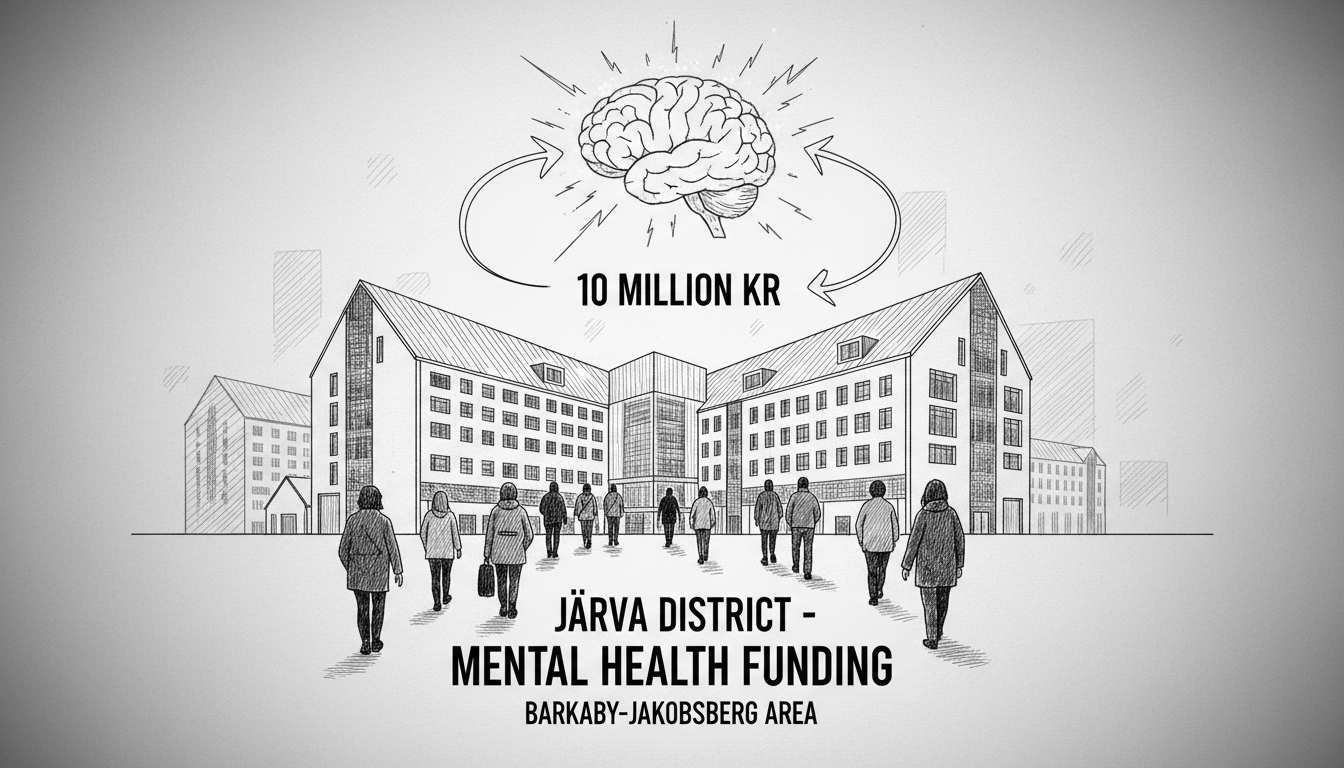Stockholm's Järva district will receive an additional 10 million kronor for mental health services. The funding comes after repeated warnings about care deficiencies in the area. This injection represents approximately ten percent of Wemind's winning bid of 107 million kronor for the region.
The money will specifically support the Barkaby-Jakobsberg healthcare district, which includes Järva. This allocation marks the maximum additional funding permitted under the current contract for this year. Officials confirm they might consider further increases in future budget cycles.
Sandra Ivanovic Rubin, the Green Party chair of the psychiatric committee, addressed the decision. She stated that based on current assessments, this funding level should address immediate needs. The committee reached this conclusion after evaluating the district's specific requirements.
Other regions managed by Wemind, including Haninge, will not receive similar funding increases at this time. This selective allocation highlights the particular challenges facing Järva's mental health services. The decision reflects ongoing concerns about care quality in this Stockholm suburb.
Mental health funding in Sweden operates through a complex regional procurement system. Healthcare providers like Wemind bid for contracts to serve specific geographical areas. The system aims to balance cost efficiency with service quality, but sometimes creates disparities between regions.
Järva's situation represents a broader pattern in Swedish suburban healthcare. Areas with higher immigrant populations and socioeconomic challenges often report strained public services. The additional funding acknowledges these structural inequalities while attempting to address immediate service gaps.
The psychiatric committee chair confirmed that funding discussions will continue. Mental health resource allocation remains a regular agenda item for their meetings. This suggests the current solution may represent an interim measure rather than a comprehensive fix.
International readers should understand that Swedish healthcare combines public funding with private providers. This hybrid model sometimes creates tension between budgetary constraints and service expectations. The Järva case illustrates how local officials navigate these competing priorities.
What does this mean for residents? The additional funding should translate to more mental health professionals and reduced wait times. It also signals political recognition of the area's specific challenges. But the limited scope raises questions about whether this addresses root causes or merely treats symptoms.
The situation reflects Sweden's ongoing struggle to provide equitable healthcare across all regions. As urban areas grow and demographics shift, the pressure on suburban services continues to increase. This funding decision represents one attempt to manage that pressure in real time.

